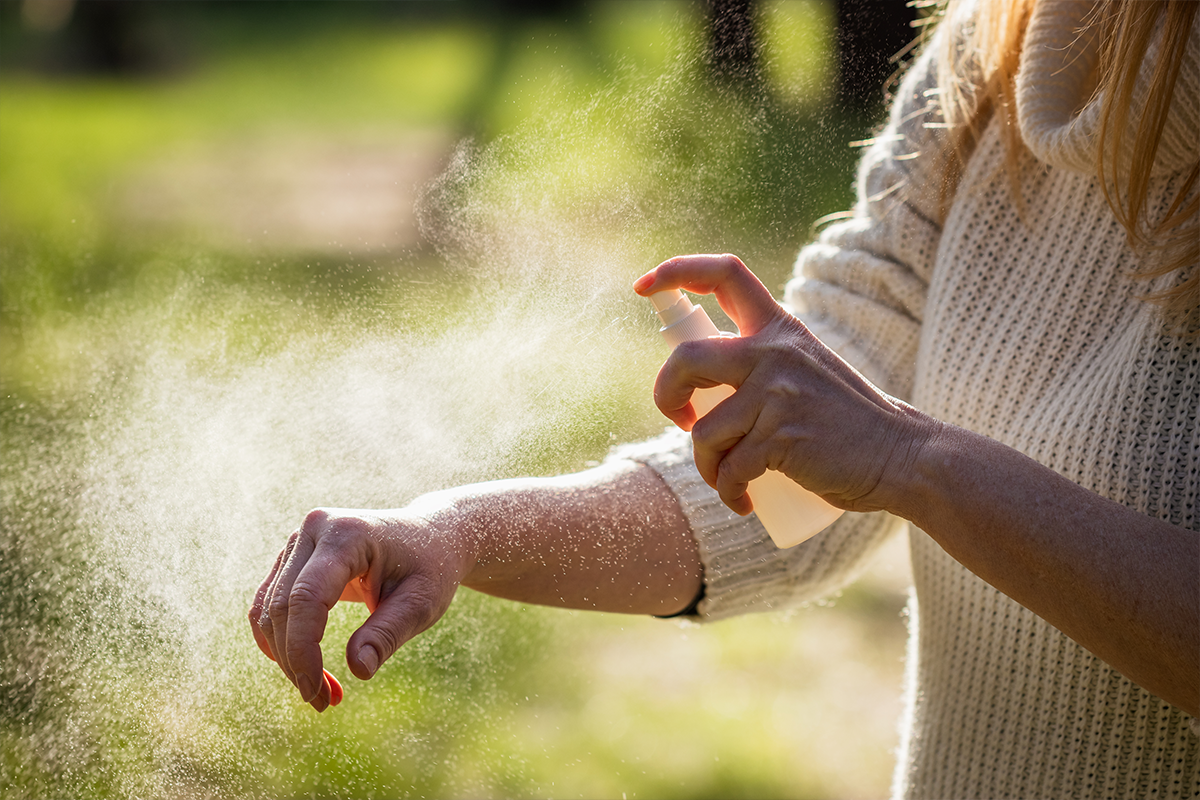Advertisement
Taking the Bite out of Mosquitoes
Last summer, when we camping near Shuswap Lake, my family and I were invited for dinner in my cousin Ron’s motor home parked at a nearby campsite. When we approached the campsite, I noticed that Ron and his family were sitting outside at the picnic table and that the windows and door of the motor … Continued

Last summer, when we camping near Shuswap Lake, my family and I were invited for dinner in my cousin Ron’s motor home parked at a nearby campsite.
When we approached the campsite, I noticed that Ron and his family were sitting outside at the picnic table and that the windows and door of the motor home were closed.
“We’ll get dinner going in a few minutes, we’re just waiting for the air to clear,” Ron said. He noticed the bewildered look on my face. “I just fumigated the motor home because the mosquitoes were pretty thick and they were starting to bite.”
When I asked him what he used to spray inside the motor home, he replied, “I don’t remember. Heck, it was just some product I picked up at a hardware store in Kamloops.”
My cousin seemed somewhat surprised when I suggested that it might be healthier if we prepared our meal on the campfire and ate outside.
When Ron finally ventured into the motor home to fetch the spray can and look at the ingredients, he was shocked to read the warning: Keep away from food, foodstuffs, and domestic water supplies. Inhalation: Harmful if inhaled. Do not use inside the home. He was also shocked when I told him that some of the repellent’s ingredients were suspected carcinogens, gastrointestinal/liver toxicants, neurotoxicants, and reproductive toxicants.
Ron said that this would be the last time he would use a spray insect killer in his motor home or his house. He felt terribly about endangering his family’s health.
The next morning, my cousin drove up to my campsite. “Hop in, we’re going into town to pick up some insect repellent that won’t poison us.” As we drove, Ron asked about the commercial insect repellents. I explained to him that many contain DEET (N,N-Diethyl-3-Methylbenzamide), a chemical that has been declared safe to use, although many people claim to have had adverse reactions when using products containing the substance. I related how Health Canada had recently lowered the allowable levels of DEET concentration (ten per cent) for children aged two to twelve and also specificed that there shouldn’t be more than three applications of the chemical per day.
As we drove down the main street of Kamloops, Ron pointed out a drugstore, “They’ll have insect repellent.” With a little persuasion, I was able to instead steer him into the natural health store a few doors away.
Ron related his story about the commercial spray to the clerk and then asked, “Any ideas on what’s a good product?” The clerk replied that the store had several products that would dissuade the mosquitoes from attacking and the ingredients certainly wouldn’t endanger Ron’s family. The product selection, she related, included sprays, creams, solids (sticks), and liquids.
The first product the clerk showed us contained neem oil. “Neem oil has been used for thousands of years for the repelling of insects,” she said, “and this product has an aloe vera base to relieve the itch of existing bites and also contains citronella and geraniol.” She showed us another product that boasted a host of ingredients: rosemary, thyme, lemongrass, geranium, peppermint, and soybean. The clerk smiled at Ron’s comment that the repellent sounded delicious and she informed us that the products were also effective in repelling other insects, as well. The clerk pointed some other repellents on the shelf. “These contain a variety of natural ingredients: cedar, verbena, pennyroyal, geranium, lavender, pine, cajeput, cinnamon, basil, allspice, and garlic.”
When Ron asked her about how to clear a roomful of mosquitoes, the clerk suggested oil of citronella, which is used as the active ingredient in candles, torches, and coils that repel mosquitoes by filling the air with a scent that she said is quite pleasant to most people.
After a short period of quiet deliberation and carefully reading the labels, my cousin chose the product with the neem oil. “Nature is beautiful,” he said with satisfaction as we drove back to the campground. “Even in insect repellents.”
Surviving Mosquito Season
- Dress to minimize exposure
- Avoid overusing sweet-smelling perfumes, hairsprays, and sunscreens
- Avoid alcohol because mosquitos are attracted to skin that is flushed and has dilated blood vessels
- Use moquito netting when sleeping outdoors or when unscreened windows are left open
- Drink pure spring water, light soups, and diluted juices to flush out toxins from mosquito bites
Source: Encyclopedia of Natural Healing (alive Books, 2002).




